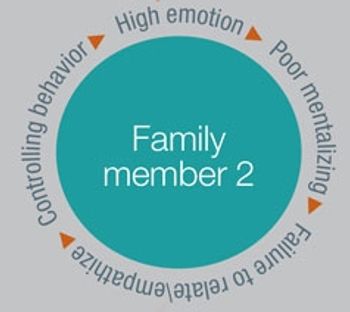
What are the benefits of traditional psychoanalytic concepts and new discoveries of mentalization-based treatment?

What are the benefits of traditional psychoanalytic concepts and new discoveries of mentalization-based treatment?

Here's what's new in personality disorders: DBT treatment, DSM-5 criteria, borderline personality disorder, narcissistic personalities, and mentalization-based treatments.

The latest research on DBT for treating psychiatric disorders, such as ADHD, bipolar disorder, eating disorders, and depression.

There is more to BPD than meets the eye. A complex interaction exists between environmental, anatomical, functional, genetic, and epigenetic factors.

MBT presents a compromise to bridge the valuable history of psychoanalytic ideas to both modern psychiatric research as well as present public health needs and practice.

An exploration topics that are relevant to most clinicians who work with patients with personality disorders.

Despite its survival and final inclusion in DSM-5, narcissistic personality disorder remains a controversial diagnosis. Here: perspectives on diagnosis, treatment, and prognosis.

Personality disorders are arguably the most challenging for psychiatrists because they are difficult to diagnose and frequently coexist with psychotic, affective, and anxiety disorders.

The key focus is on understanding violent offending (eg, reactive, proactive, firearm violence) tied to antisocial personality disorder and psychopathy using a psychobiological lens.

This study highlights the need to consider a holistic approach when discussing the problem of disruptive behavior in health care settings.

How the Repressed-Recovered Memory–Multiple Personality Disorder iatrogenic epidemic-surely one of the most tragic chapters in the history of psychiatry, psychology, and psychotherapy-ended, and how psychotherapy patients came to be protected by informed consent.

In the 1980s, thousands of patients insisted they were recovering childhood memories of physical and sexual abuse during Satanic cult rituals. Here: a look back at the moral panic.

Patients with borderline personality disorder or narcissistic personality disorder (or both) can feel entitled to special treatment and often seek only approving forms of attention from those who treat them.

Adjustment disorder is one of the few psychiatric diagnoses for which the etiology, symptoms, and course, rather than symptoms alone, are central to making the diagnosis. Both emotional and behavioral disturbances are present and include low mood, tearfulness, anxiety, self-harm, withdrawal, anger, and irritability.

Borderline personality disorder typically coexists with depression, anxiety, and substance abuse. Symptoms of these conditions may lead the clinician to miss the diagnosis of personality disorder entirely. Careful diagnosis of BPD and comorbid disorders is the first step.

Narcissistic personality disorder is largely understudied, in spite of clinicians' warnings that this is the most frequent presentation in patients.

Patients with masochistic tendencies present with self-defeating patterns and often reject help.

DSM-5 better captures the essence of narcissistic personality disorder (NPD) than previous versions did. The hypervigilant NPD subtype is the least understood but seen the most often in patients.

Are patients with borderline personality disorder at a significantly increased risk for suicide when in the angry victim state? This question and more in this quiz.

Neural underpinnings and symptom presentation in borderline personality disorder might explain similarities and differences in this symptom domain across the spectrum of personality disorders as well as in other disorders associated with impulsive symptoms.

BPD appears to be a neurodevelopmental disorder, influenced by the person’s genetics and brain development and shaped by early environment, including attachment and traumatic experiences.

Staying empathic and keeping the conflict within the patient instead of between the patient and health care provider, is a key to successful management.

Sybil Exposed makes the case that the 1973 book Sybil misrepresents the facts of Shirley Mason’s life, diagnosis, and treatment. It also points to concerns that extend beyond a single case, to the diagnostic concept of multiple personalities. Still, perhaps the books suggests the need for a more systematic look at not just the case of Sybil, but also the diagnosis of dissociative identity disorder (DID).

The paradigm for modern psychiatry is evidence-based medicine (EBM)-it represents proven treatments for defined diagnoses. But there are major problems with this position, starting with the fact that while they are superior to placebo, evidence-based treatments too often are ineffective.

Borderline Personality Disorder: New Reasons for Hope is one in a series being published by Johns Hopkins University Press on major psychiatric disorders.